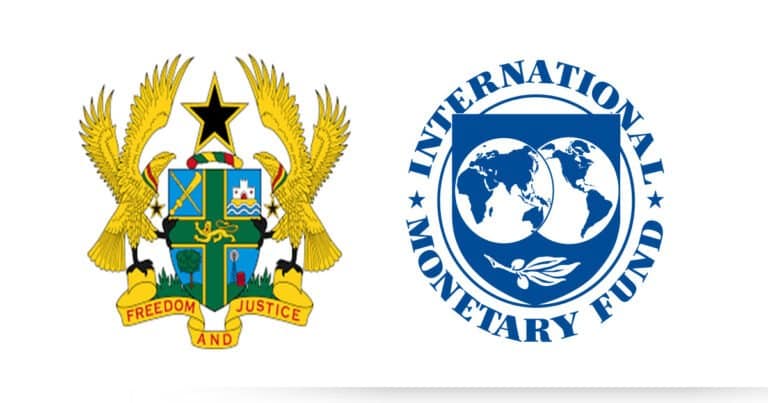Accra, Ghana – The International Monetary Fund (IMF) has showered Ghana with praise for its significant strides in implementing an ambitious economic reform program. A press release issued on October 7, 2023, follows the IMF’s approval of a $3 billion Extended Credit Facility (ECF) for Ghana in May 2023.
This financial lifeline was aimed at tackling immediate policy challenges while bolstering Ghana’s economic growth and debt sustainability. In this comprehensive article, we delve into the IMF’s positive evaluation, as well as the noteworthy developments highlighted in a subsequent press release, the challenges Ghana still faces, and its strategy to maintain the momentum of economic progress.
IMF’s Positive Evaluation and Financial Boost
The IMF staff review team’s satisfaction with Ghana’s economic performance underlines several key achievements:
- Strong Policy Commitment: Ghana’s unwavering commitment to policy and reform has yielded impressive results, as attested by the IMF. The program’s targets and reform objectives have been met with resilience.
- Economic Stabilization: Ghana’s economy has shown signs of stabilization, surpassing initial projections. Notable improvements include more resilient growth in 2023, declining inflation rates, improved fiscal and external positions, and a stable exchange rate.
- Bold Decisions: The nation’s proactive measures, including macroeconomic policy adjustments, successful domestic debt restructuring, and comprehensive reforms, have contributed significantly to its economic turnaround.
Unlocking Additional Financial Support
The positive IMF review opens doors for Ghana to access an additional $600 million from the approved $3 billion. This can materialize once the IMF’s management and executive board give their formal approval to the review, demonstrating the tangible benefits of the nation’s commitment to reform.
Challenges on the Horizon
While Ghana’s achievements are commendable, several challenges still require careful navigation:
- High Debt Levels: The country debt remains a concern and must be managed diligently to ensure long-term financial stability.
- External Vulnerability: The nation remains exposed to external shocks, such as surging oil prices and a global economic slowdown. Measures to enhance resilience are imperative.
- Continued Reforms: Ghana must persistently implement structural reforms to enhance the business environment and foster sustainable growth.
Sustaining Economic Progress
For Ghana to maintain its economic progress and secure a prosperous future, it must focus on these key strategies:
- Debt Management: Prioritize debt reduction through prudent fiscal management and responsible borrowing practices. A concerted effort to reduce debt can free up resources for crucial investments.
- Resilience Building: Develop financial buffers and policies that safeguard against external shocks. Diversifying the economy and reducing reliance on specific sectors can enhance resilience.
- Investment in Critical Sectors: Channel resources into education and infrastructure to promote sustained economic growth. A well-educated workforce and efficient infrastructure can attract foreign investments and drive domestic industries.
Conclusion
The country economic journey is gaining traction, buoyed by the IMF’s approval of its reform program and subsequent positive evaluations. While challenges persist, the nation’s unwavering commitment to fiscal prudence, structural reforms, and strategic investments paints a promising picture of its future. The nation is on a path to not only sustain its economic progress but also offer its citizens a brighter and more prosperous tomorrow. The IMF’s endorsement and the financial boost it brings are tangible markers of the nation’s dedication to reform and economic transformation.
FAQs
1. What is the IMF’s Extended Credit Facility (ECF) for Ghana?
- The IMF’s Extended Credit Facility (ECF) is a financial assistance program designed to help countries overcome immediate policy and financing challenges. In the case of Ghana, it amounted to $3 billion in support, aimed at bolstering economic growth and debt sustainability.
2. How does the country plan to address its high debt levels?
- Ghana is prioritizing responsible fiscal management and prudent borrowing practices to reduce its high debt levels. The nation aims to free up resources for critical investments by actively managing its debt burden.
3. What steps is Ghana taking to build resilience against external shocks?
- The nation is working on diversifying its economy to reduce its vulnerability to external shocks, such as rising oil prices and global economic slowdowns. Establishing financial buffers and adopting policies to safeguard against such challenges is part of the strategy to enhance resilience.
Akufo-Addo Leadership in Ghana




